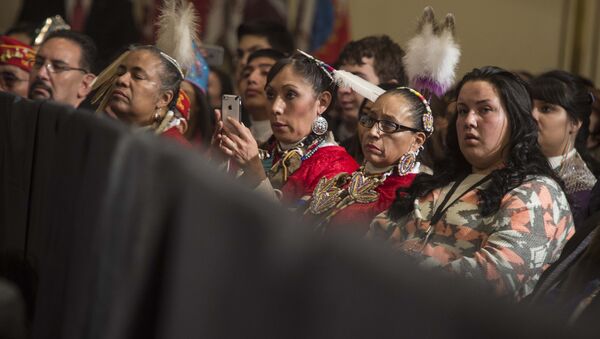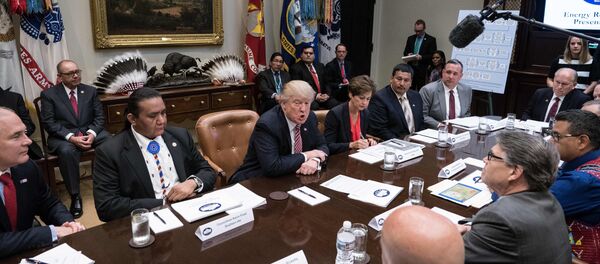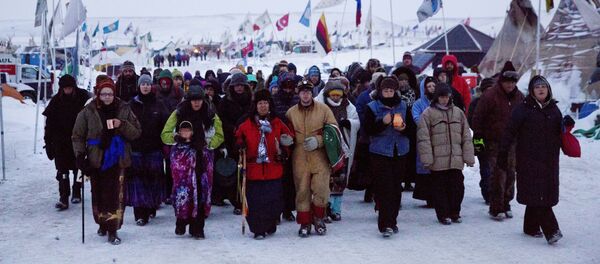"A lot of young kids now, unfortunately, are into electronics, telephone, games. They are not interested in our reservations any longer… A lot of them don’t dance any more, a lot of them don’t tend to be interested in what’s going on in our reservations… It’s heartbreaking because they are not interested in their own reservations, language, the way of living," Isaac Wak Wak, a Colville San Poil Native American, said on the sidelines of the National Congress of American Indians (NCAI).
"It’s a very poor area," Wak Wak said of the 2,900 reservation located in the central part of Washington. "The younger people don’t stay. A lot of them leave as soon as they graduate. One, because there are hardly any jobs. Two, because education, armed services, different individual interests [lay] outside of the reservation."
Dennis Montoya of the Santee Dakota tribe, a Sioux, who currently lives in Denver, Colorado, said the increasing adoption of children from Native American families by parents from outside the reservations — a practice he characterized as kidnapping — leading to the children’s loss of identity.
"The major difficulty, I think, is the Child Welfare Act. The local governments, the state governments, they come and they adopt our kids out to say so," Montoya said.
Montoya explained that rampant alcoholics and drug abuse force parents to offer their children for adoption.
Montoya explained the children grow up not knowing their Native American culture.
"When they grow up to be adults, they are missing something in their life. So they start researching and finding who their family was. When they start looking for their family, their family is like 'Where have you been, we’ve been looking for you this whole time, but we couldn’t find you because adoption papers are sealed'," Montoya said.
Montoya also said an additional issue facing Native American tribes is the disappearance and murder of indigenous women across reservations such as in the US states of South Dakota and Montana.
"All the oil and gas companies they have these man camps, so the women disappear, the children disappear. They pass them around each other in these camps. Human trafficking. It’s bad in Indian country," Montoya said.
Montoya, whose indigenous name is Wambli Tokahe (First Eagle), also said his own tribe is making efforts to preserve its language and culture, adding that the Sioux language has now been addedin school curriculums because it was disappearing.
The Kiowa tribe is currently working with Oklahoma’s State Department on making its native language a requirement for graduating from high schools as part of the efforts to preserve the tribe’s culture and traditions, local legislator Michael Primus told Sputnik.
Kiowa tribe is the Southern Plains tribe of about 12,000 people in southwestern Oklahoma, according to Primus.
"We are working on a program to implement our language into the school system to be taught. We work with the State Department of Oklahoma to be able to have our language count as a language requirement which they need before they get out of high school… Even though we are on the reservation, it’s a public school where everybody from the community still attends," Primus said.
The legislator noted that that the tribe had a Kiowa language and culture revitalization program to help preserve the traditions.
READ MORE: #NoDAPL: How US History Mis-Remembers Native Americans’ Struggle for Their Land
"We have a get together for the youth every quarter and we go over some of our points of culture such as horses, our ceremonies and our proper regalia, which we wear when we dance, and our ancient games that the children play," Primus said.
Established in 1944, the National Congress of American Indians is the oldest and largest non-profit organization representing Native American tribes and the interests of tribal governments and communities in the United States.




